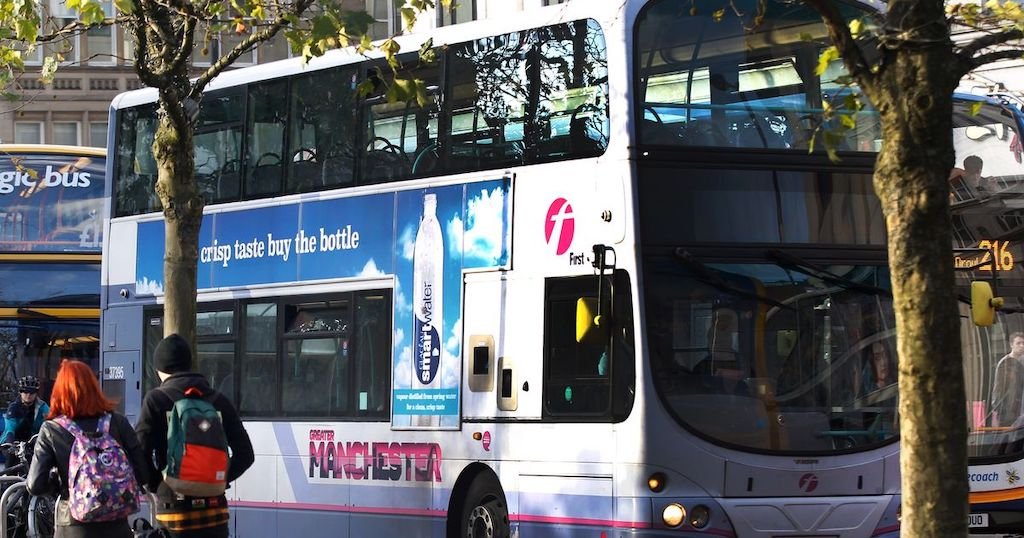What’s your thought when you see a bus?
At the heart of the Levelling Up White Paper is the recognition that we need to achieve different outcomes, and that requires a change in the way we plan, develop, and implement future transport solutions, says Martin Tugwell, chief executive of Transport for the North
When you see a bus what is your immediate thought?
Do you simply see a mode of transport? Or do you see a means of enabling students to access education; something that is the only way for some people to access to services and opportunities; or a means of enabling an aging population to continue to live independently for longer?
We are very used to calculating the cost of providing a bus to operate a service, of looking at the revenue collected and coming to a view as to whether a service is profitable or (more likely) not.
We are not so good at valuing how that bus service enables independent living and or how it contributes to a better quality of life. Nor are we as good at recognising that a more active population leads to improvements in health, both physical and mental, that, in turn, leads to reduced demand for health and social services.
And herein lies the challenge facing us: we need to reshape our thinking to be user centred, place-based, outcome focused. For at the heart of the Levelling Up White Paper is the recognition that we need to achieve different outcomes, and that requires a change in the way we plan, develop, and implement future transport solutions.
We need to reshape our thinking to be user centred, place-based, outcome focused
We must start thinking of our transport system as part of a wider system of infrastructure and services that enable individuals and communities realise their potential.
We need to draw strength from our response to the pandemic which demonstrated that there is nothing immutable about travel patterns: that change can happen, in some instances, overnight.
We need to use the richness of data that provides insight into our lives, our communities, and our environment to put people and places at the centre of our thinking.
The seven Sub-national Transport Bodies are stepping up to their role as regional centres of excellence, providing thought leadership on strategic transport issues shaped by the insight held captured in their Regional Evidence Base. They are at the forefront of looking beyond the traditional paradigm with its over emphasis on peak hour flows, driven by the outdated assumption that economic growth inexorably leads to more cars, to one where the emphasis is on setting out where we need to be and then mapping what needs to happen to get there.
STBs are also at the forefront of recognising that the business models that underpin our transport system are no longer fit for purpose
STBs are also at the forefront of recognising that the business models that underpin our transport system are no longer fit for purpose: electrification of road vehicles will lead to a black hole in funding: changes in the pattern of rail demand mean that the commuter is no longer a captive market: and the fundamentals of the bus market have been largely unchanged for nearly 40 years.
Their work on decarbonisation, on mapping transport inequalities within our communities, on identifying the economic potential of their region are the foundations of an outcome focused approach. They are essential to embedding systems thinking into the development of solutions that address the future rather than the past. They are critical to ensuring that our solutions are tailored to the diversity that exists within our communities.
We might look at countries such as Luxembourg and comment on their ‘free’ public transport system. Of course, nothing is free; rather the wider benefit of having free public transport is seen as being desirable to effect wider change within society.
Now what’s your thought when you see a bus?
The inaugural STB Conference takes place at the Vox in Birmingham on 26 May. The programme focuses on the STB’s shared challenges while positioning transport as an enabler for national economic, environmental and social goals. The event is free to attend and you’ll find further information, including how to secure your place at www.stbconference.com
Martin Tugwell is chief executive of Transport for the North. He has more than 20 years’ experience in strategic transport and infrastructure planning at national, regional and local levels, with previous roles at England’s Economic Heartland, the South East England Regional Assembly, the Transport Systems Catapult, and Oxfordshire and Devon County Councils. Martin is a Chartered Engineer and a Fellow and past President of the Chartered Institution of Highways & Transportation (CIHT) and a Fellow of the Institution of Civil Engineers (ICE). He is a Trustee of the CIHT and past Chairman of the Transport Planning Society. He is also chair of the STB Conference advisory board.



